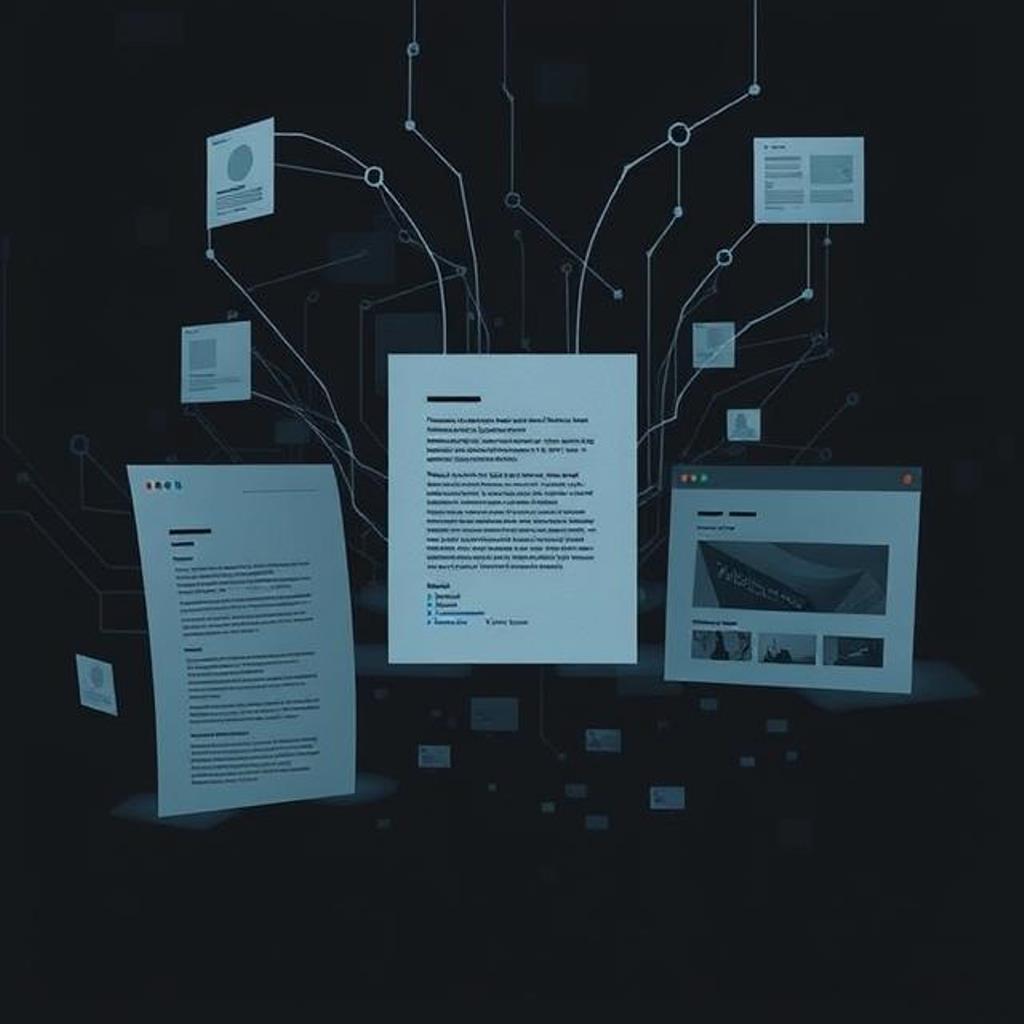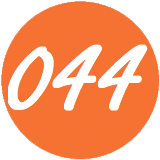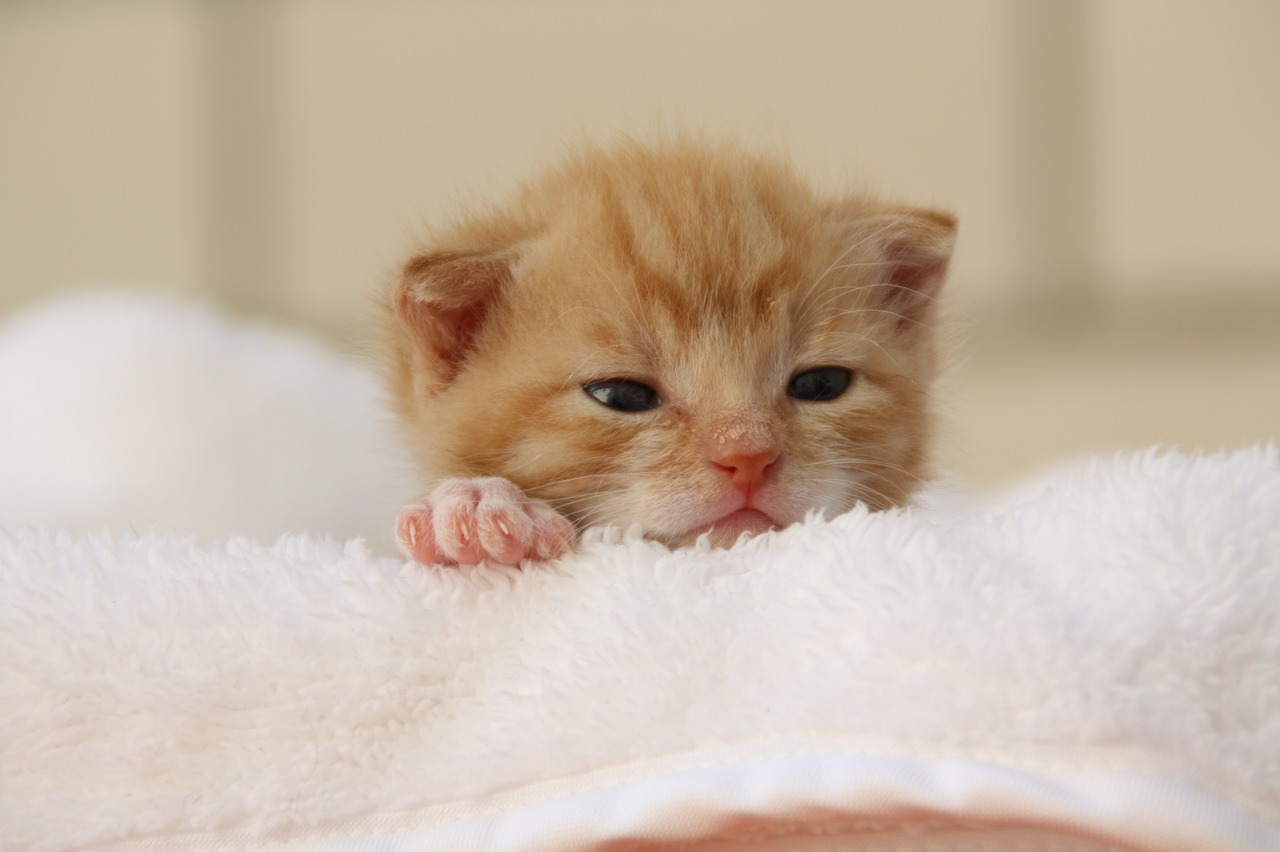
AI and the Web: The Coming Creative Crisis
This article presents a more skeptical, critical view of the impact of generative AI on creators and the open web. If you’d like to start with the more optimistic take, read: AI and the Web: A Future Full of Potential.
AI’s Impact on the Web Is Not Just Evolution, It’s Displacement
The article "AI and the Web: A Future Full of Promise" offers us a cyber-utopian view of the future of AI on the web — one where web sites, blogs, and content producers simply must "evolve" and live alongside content created by machines. Such reporting glosses over some of the more fundamental structural, economic, and philosophical concerns AI disruption creates. Though highly commendable and filled with good strategic sense, the piece ultimately decides in a techno-solutionist tone of voice that posits as a self-evident fact that disruption by AI is unavoidable and most for the best — and that the designers will be sufficiently capable of coping with it by having the mere agility and an optimism.
Actually, the future of human-generated content is rather a case of systems displacement, economic imbalance, and cultural homogenization, not adaptation. What follows is a more realistic critique of assumptions in this article, exposing what's missing and where they're unrealistic or wrong.
1. Referring to the AI Disruption as an "Evolution" Conceals Its Extractive Underpinnings
The article puts AI disruption on the stage of digital evolution — an opportunity for human creatives to claim for themselves what they are best at in new forms. It does so, however, at the expense of downplaying an uncomfortable truth at the center: generative AI models are inherently extractive.
They are trained on enormous amounts of material — blog articles, tutorials, forum threads, news stories, code snippets, and fiction written by human writers who were never requested, never compensated, and never acknowledged. The circumlocution of "synthesis" conceals the reality that these models profit from unpaid labor from millions of authors, journalists, artists, and programmers.
Instead of a process or a good one, it's encaging of knowledge at scale — public (and occasionally even private) knowledge gets hijacked by AI systems that rival their makers head to head. The metaphor is less "evolution" and more "industrial disruption without payout."
2. The Economic Consequences Aren't an Afterthought — They're the Point
The article acknowledges declining page views and ad revenue but sees them as an obstacle to be avoided by diversification. This radically fails to comprehend the economic meltdown for small publishers, contract bloggers, and even credible news outlets. If traffic and advertising income decline off a cliff -- not because the content isn't interesting anymore, but because AI engines intercept questions and spit back answers immediately -- the open web business model collapses.
This is not a plea to "pivot on affiliate links" or "test on Patreon." It's a market skew where AI companies monetize the same content economies they're harming — and all too often don't reap the rewards. In this kind of economy, creators aren't pivoting — they're being undercompensated at scale.
3. E-E-A-T and Trust Signals Won't Save Most Sites
Experience, Expertise, Authoritativeness, and Trustworthiness (E-E-A-T) are the underlined impenetrable bulwarks against being swamped by AI. However, while these are sound concepts, the efficacy of these bulwarks is overstated.
Computer programs can already create text that appears authoritatively-written, complete with spurious citations, bold tone, and coherence flow. Most customers — including infrequent searchers — have no easy means of distinguishing genuine expertise from AI-created coherence. Illusion of authority can work a very long, long way.
Secondly, search engines themselves (now with AI-powered abstracts) owe you no obligation to provide you with fair credit or point back to sources they abstract. Even when your content is in the pinnacle of E-E-A-T, you can be abstracted out of business by a chatbot interface, gratis, uncredited, and unraveled.
4. The "Human Connection" Argument Is Idealistic and Elitist
The article's position that human beings would forever need human interaction, personality, and storytelling is true — but not to the extent it does to justify the majority of creatives. For each little niche handmade blogger who can maintain a dedicated following, there are a handful of thousands of content creators who need larger, search-based exposure to be able to cash their creations out.
Waiting for the world to "be more personal, unique, or community-driven" ignores the harsh economic reality: connection can't scale like utility. People may adore a personality-driven podcast show or personality-driven cookbook site, but in 95% of information requirements, convenience will prevail. And AI will keep delivering that convenience quicker, cheaper, and more interactivly than sites of old.
It's not quality over quantity — it's gradual erasure of firm economic middle ground between viral influencers and hyper-niche specialists.
5. AI Won't Upend SEO — It Will Replace Entire Content Categories
The article tries to reassure creatives that only "surface-level" content will be threatened. The reality is, AI already possesses the ability to replace all but most forms of functional content, including:
- How-to's and tutorials (especially when supplemented with images or videos generated by multimodal models)
- Product reviews (via aggregate sentiment and specs)
- Descriptive articles, glossaries, comparisons, overviews
- Even snippets of code, legal forms, and technical reports
It’s not just about "simple definitions" anymore. The capabilities of LLMs are advancing rapidly, and multimodal models like OpenAI’s Sora or Google’s Gemini 1.5 are starting to eat into multimedia and video content domains as well. The notion that AI will always need human-created “source material” may become obsolete if these systems evolve to simulate not just facts, but methodologies, styles, and even interactivity.
6. The "Human-AI Symbiosis" Is Unbalanced and Menacing
The piece scolds creators to "use AI as a tool, not a competitor." A sweet notion — and AI tools do promise to enhance workflow, productivity, and creativity. But even here, the rosy vision ignores stark realities:
- Platform risk: The majority of AI tools are controlled by the very same companies upending creators' traffic and revenue streams.
- Devaluing of content: The application of AI to create content can homogenize and further devalue exclusivity, and risk long-term brand reputation.
- Erosion of competencies: Excessive use of AI would wipe away required creative competencies in the future, as calculators impacted people's perception of mathematics.
The future is not going to be parasitic, but symbiotic — where artists will increasingly have to work with AI just to be able to survive in an increasingly rewarded world that values volume, velocity, and scale more than quality and depth.
7. Missing: The Political, Legal, and Cultural Dimensions
Lastly, the article fails to even discuss any serious reflection on the more general regulatory, ethical, and philosophical issues involved:
- Do AI companies have a right to train on material without permission?
- Should creators be forced into payback mechanisms?
- Who decides what "reliable" material is brought forward or called upon by AI systems?
- What happens to knowledge diversity when everything runs through several black-box models?
They are not straw men. They will shape the fate of the future web: whether it remains a half-open commons or redesigned as a walled garden of algorithmic abstractions maintained by a handful of industry titans.
Not Just a New Chapter — A Paradigm Shift with Real Casualties
AI and the Web: A Future Full of Potential is an implicit work guide to creatives who want to react — but it does so by evading or sidestepping the power dynamics and extraction economies that define this new world. It romanticises resilience without engaging with the structural ruinages which AI is currently inflicting on the open web, creator economies, and digital diversity.
Generative AI innovation isn't even close to being an "evolution." It's a live disruption of virtual value chains — one where the benefit accrues to a handful of platform owners, and the expense is dispersed among tens of millions of creators who actually created the material on which such models are drawing their foundations in the first place.
Adaptation, certainly — but so, too, is resistance, regulation, and reinvention of rules that govern digital content and ownership. If we don't insist on tougher questions now, we risk having an internet optimized for computers, not humans.
Post a comment on what you have to say on the article AI and the web: The Coming Creative Crisis
Whatever your vision of AI as artistic revolution or coup mess, the stakes are serious and nuanced.
For a more positive vision of transformation, read the other book: AI and the Web: A Future Full of Potential. Who do you find more convincing — and why? Join the conversation in the comments.









